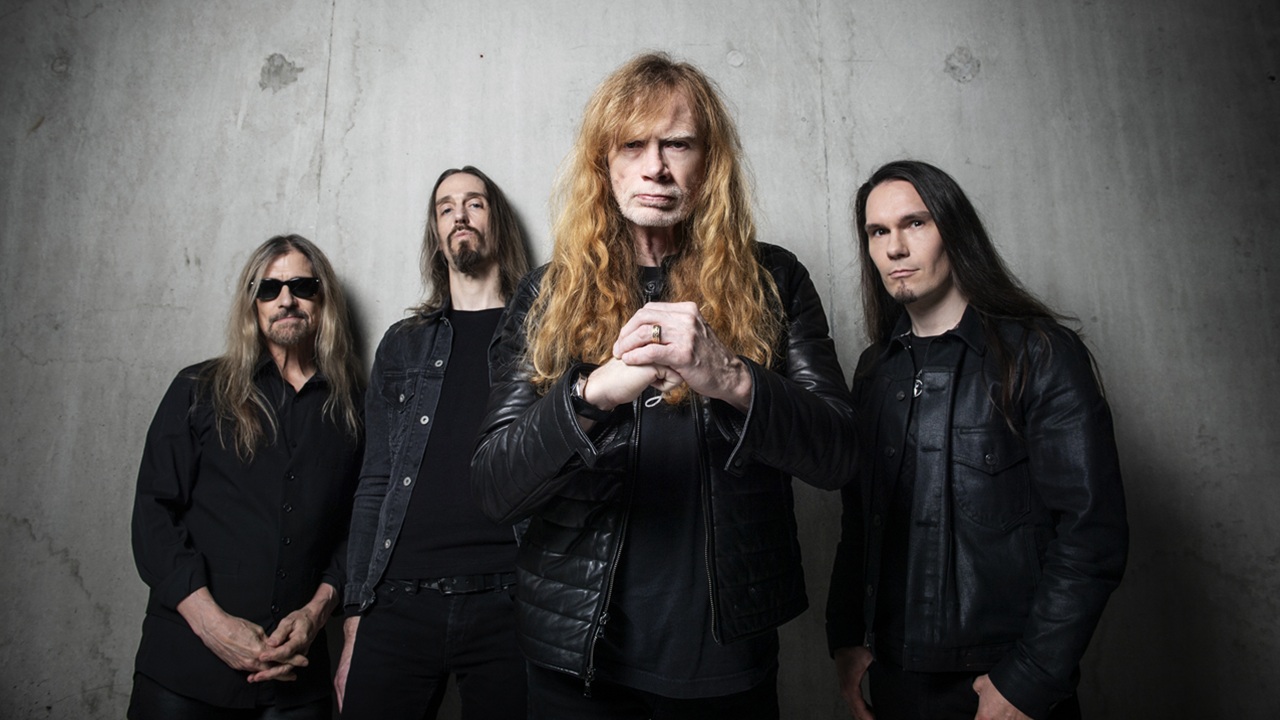Report: Are YOU being priced out of gigs?
With many of our readers often asking us what goes into the price of an average gig ticket, we asked the people in the know to explain all...
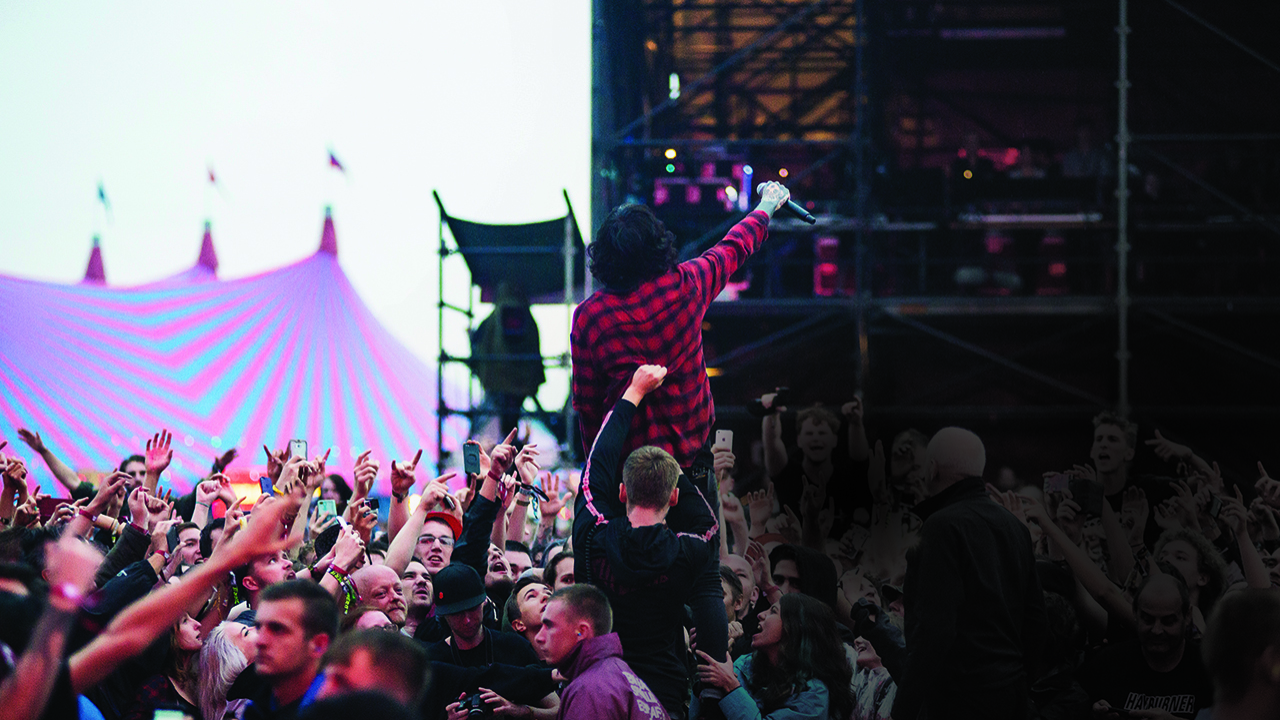
Select the newsletters you’d like to receive. Then, add your email to sign up.
You are now subscribed
Your newsletter sign-up was successful
Want to add more newsletters?

Every Friday
Louder
Louder’s weekly newsletter is jam-packed with the team’s personal highlights from the last seven days, including features, breaking news, reviews and tons of juicy exclusives from the world of alternative music.

Every Friday
Classic Rock
The Classic Rock newsletter is an essential read for the discerning rock fan. Every week we bring you the news, reviews and the very best features and interviews from our extensive archive. Written by rock fans for rock fans.

Every Friday
Metal Hammer
For the last four decades Metal Hammer has been the world’s greatest metal magazine. Created by metalheads for metalheads, ‘Hammer takes you behind the scenes, closer to the action, and nearer to the bands that you love the most.

Every Friday
Prog
The Prog newsletter brings you the very best of Prog Magazine and our website, every Friday. We'll deliver you the very latest news from the Prog universe, informative features and archive material from Prog’s impressive vault.
One of the single most common questions we get posed here at Hammer circles around the issue of the rising price of gig tickets – namely, “Where exactly does my money go?”
So, we decided to call upon various companies, industry heavyweights and bands – the majority of whom, in the interest of full disclosure, we work with on a regular basis – to find out what goes into the pricing of a ticket, where that money goes and why those behind it believe that, ultimately, it is still the consumer that is prioritised above all else.
According to US live music trade mag Pollstar, the average ticket price hit an all-time high this year at $76 (£49), up from $57 (£37) in ’05. Earlier this year, Limp Bizkit fans expressed outrage at the £40.50 price tag for their Brixton Academy show, while the band’s one-off date at the same venue cost £29.50 in 2012. And that’s without booking fees, which usually fall between £4-£8 extra. So, what’s going on?
There are many factors to consider when booking a tour, and many people to pay. Profits are divvied up by the promoter (the person in charge of the event), between themselves, the band and their management. The promoter has to pay 20% to the tax man and 3% to PRS For Music – the collection society that ensures songwriters are remunerated for their music being played live. Other costs usually include venue hire, production, insurance and catering. Band expenses include transport, petrol, hotels, food and drink, and wear and tear on their gear. In short, there is a hell of a lot to take in.
If the band are on a major label, they may receive an advance payment to finance some of the process, but they’ll have to recoup the money through ticket or record sales, depending on the deal they’ve signed. Production costs differ, depending on how big the show is. One of the reasons Vans Warped Tour UK can charge a reasonable price of £51 for 30+ bands is because production is rudimentary. A show with lasers, pyro, whistles and bells costs more. And running a venue in 2015 is no cash cow, either. Noise complaints from neighbours and developers building residential properties close by have caused a fair few to shut their doors, unable to afford soundproofing costs. In London, 40% of small venues have closed in the last decade, and country-wide casualties include Blind Tiger Club in Brighton. Meanwhile, the rising price of overheads but stagnant cost of beer have led some remaining venues to demand a 25% + VAT commission from bands for allowing them to sell merchandise, cutting further into sparse profits.
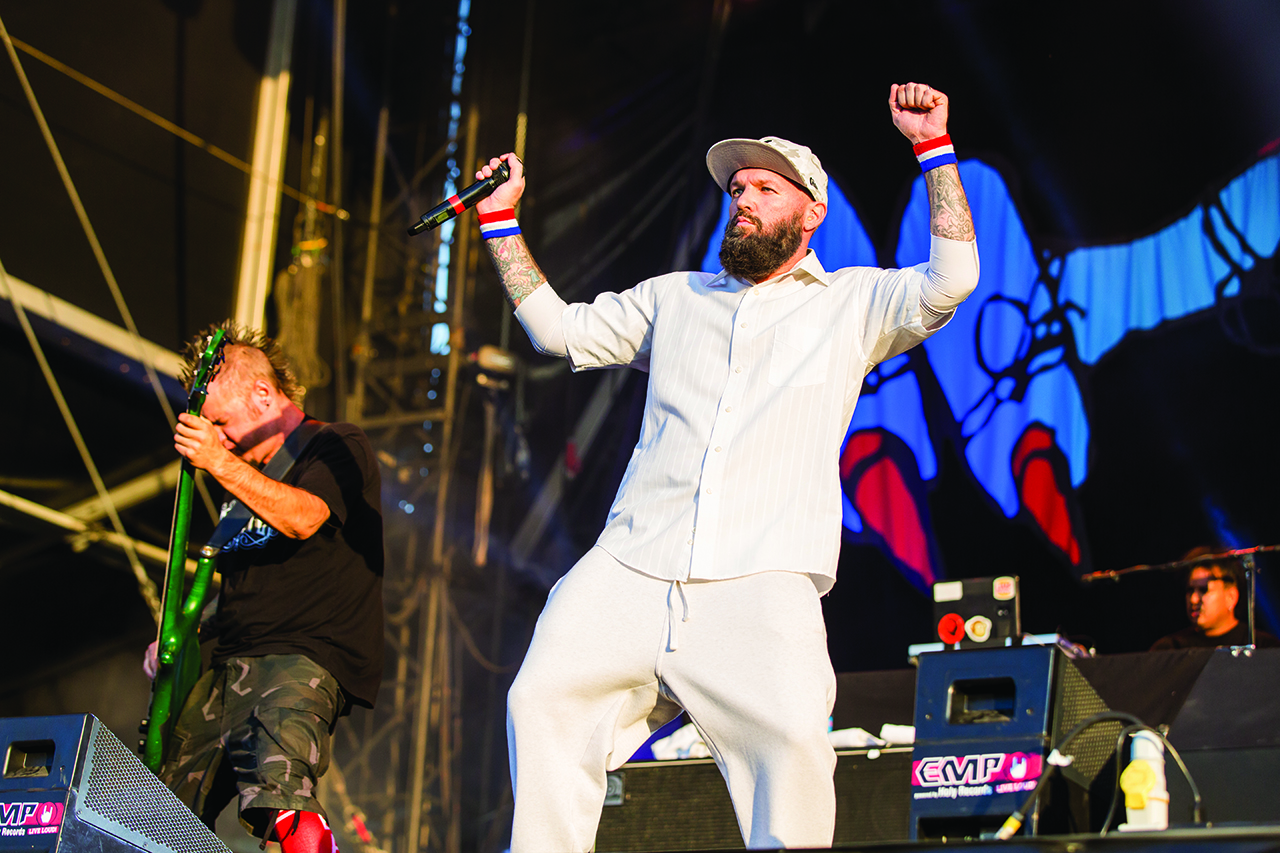
“The reality of it is that the band may walk away with $1,000 for four months of touring – there is really not much profit in it,” says Joey Simmrin, founder of management company Rebellion Noise, which looks after the likes of Architects, Escape The Fate and Counting Days. “Being in a band is a start-up business. When you get out on the road from the beginning you’re not making money for, probably, five years. The record labels used to fund that initial process, which has now got cut out.”
Bring Me The Horizon’s Alexandra Palace date on November 28 costs £25, and Five Finger Death Punch’s show at Wembley’s SSE Arena on the same day is £27. So far, so fair.
Sign up below to get the latest from Metal Hammer, plus exclusive special offers, direct to your inbox!
“Everything from the size of production to what other tours are happening around that time can decide a ticket price,” explains 5FDP’s Zoltan Bathory. “The goal is to bring the best possible show for the most reasonable price. We have a creative, outside-of-the-box way of doing things, so we can put on giant shows without passing the cost down to the fans.”
But what of those extra fees? Ticketmaster (with whom Hammer’s parent company has a commercial partnership) add a £5.50 delivery charge and a £4 fee to BMTH’s tickets, while the 5FDP gig has a £5 fee and the same postage cost. The charges help cover the cost of processing bookings, operating the ticketing software and computer network, and envelopes and stamps. Hammer asked Ticketmaster whether it was doing anything to reduce the price of booking fees and postage costs, and whether they make a profit from such costs. The firm referred us to an online blog post explaining its commitment to “100% transparency”, and that “the complex nature of our business means that we need to charge them to ensure that right from the first step of the event-going experience, booking a ticket on our website is as easy as possible.”
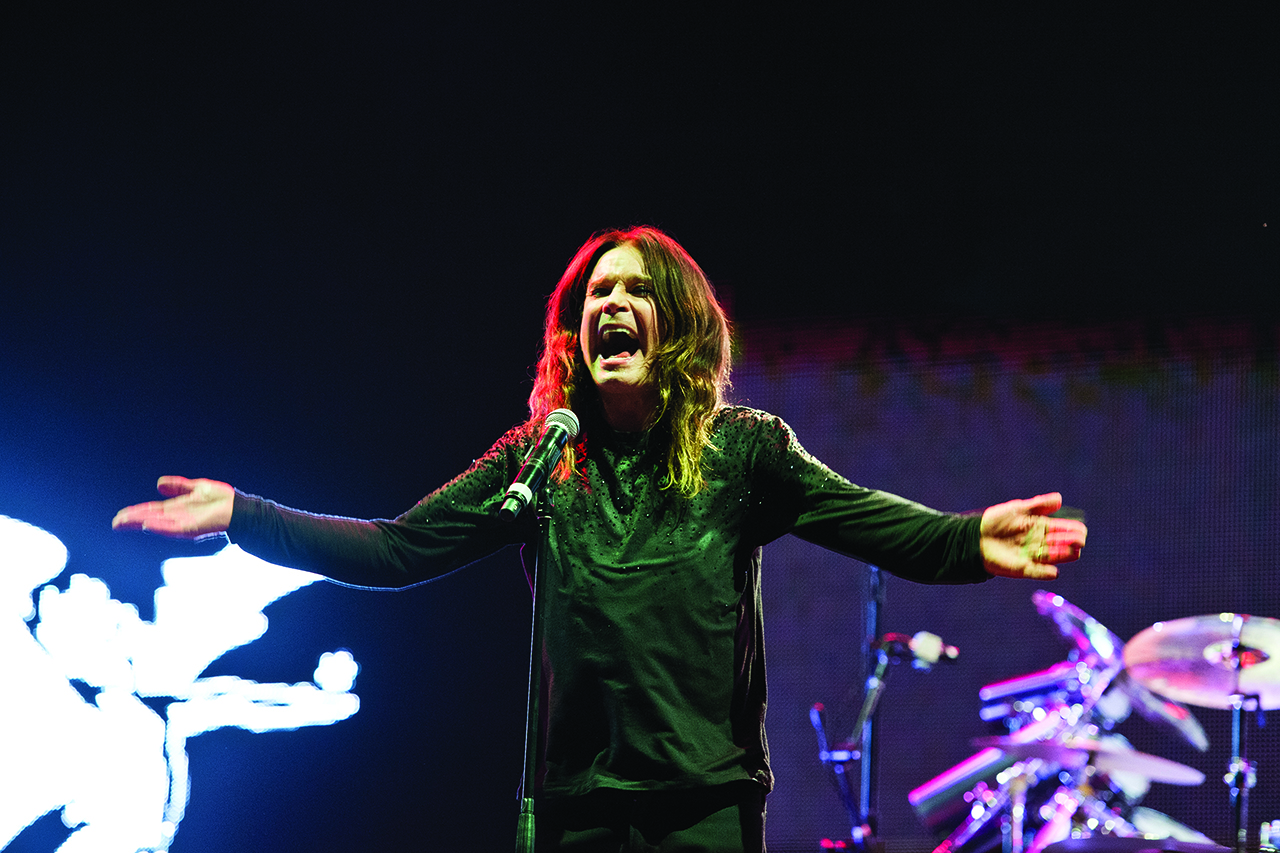
Andy Copping, Live Nation promoter and Download festival booker, says: “Booking fees are capped by the ticketing agents and they need to charge for their service. We do our best to cap these at a reasonable level.”
Stuart Galbraith, founder of Kilimanjaro Live, which promotes UK Warped and Sonisphere, says his company tries to keep fees in check, too. “In conjunction with the artist, we limit those fees, which have been kept in control in the UK. In the US, fees and charges can run anything up to 35⁄40%, which is ridiculous,” he says. “In the UK, we’d look to limit booking fees to between 10 and 15% of the ticket price, and with specific artists we’ll make that even cheaper.”
Veteran bands have made headlines for their ticket prices. The Rolling Stones charged £90-£375 for their comeback London O2 Arena shows in 2012. Less emphatically, Korn’s show at Brixton Academy in 1997 cost £10, while tickets to their show at the same venue this year were £39.50. That’s not down to inflation; £10 in 1997 is worth around £17 today. Elsewhere, US dates for Black Sabbath’s The End tour range from $33 (£21) -$147 (£95).
Rolling Stones promoter Galbraith says bands can have a say in ticket prices. “The price for the Stones gigs is what the band wanted us to work to,” he explains. “Customers were prepared to pay that – the most expensive tickets were the ones that sold the fastest.” Adds Simmrin: “The more money you charge, the more you are going to make.”
Opeth are unquestionably one of the biggest bands in metal, yet had tickets for last year’s packed-out London Roundhouse show on sale for just over £20. Frontman Mikael Åkerfeldt feels album sales may play a big part in how gig tickets are ultimately priced, but thinks his band have managed to avoid a rise because their sales have never dipped dramatically.
“We aren’t a super-band like Bon Jovi who have to make the money up from the drop-off in CD sales,” he muses. “We have always sold modestly, but not total shit, so we can tour consistently without the price changing too much. I imagine that bands who sold millions of albums in the 80s have a budget they want to maintain.”
Festivals aren’t immune to rising prices, either. It’s down to festivals getting bigger and costing more to run due to health and safety regulations and, according to Galbraith, artist fees increasing massively to play exclusively. “It’s a competitive marketplace; festivals compete for huge headliners and there are never enough to go around. An expensive ticket is therefore necessary to make it work,” he explains. “Lots of people see festivals as huge events that make fortunes, but when a festival doesn’t sell they can also lose fortunes and wipe companies out.”
Crowd-funded effort Alt-Fest was a prime example last year, which was cancelled due to poor ticket sales. And Galbraith called off Sonisphere in 2012, 2013 and 2015.
Copping says Live Nation have swallowed some of the artist costs rather than passing them on to the ticket buyer. He believes Download, which costs £195 plus £10 fees for a weekend ticket with three nights’ camping, still offers good value for money because of the number of bands people get to see.
“To go and see three headline acts perform in their own shows can be anything between £45 and £65 each – let’s say that’s an average of £55. So just to see three big acts, the tickets will cost you £165. Then you have three separate costs of travel, whereas Download is only one. Download has over 100 bands on a weekend, the bulk of which being big-name acts. Let’s say 40 of these names are definitely bands an individual wants to see – that’s £5 a band. That’s pretty good value, let alone the atmosphere and vibe adding to the experience.”
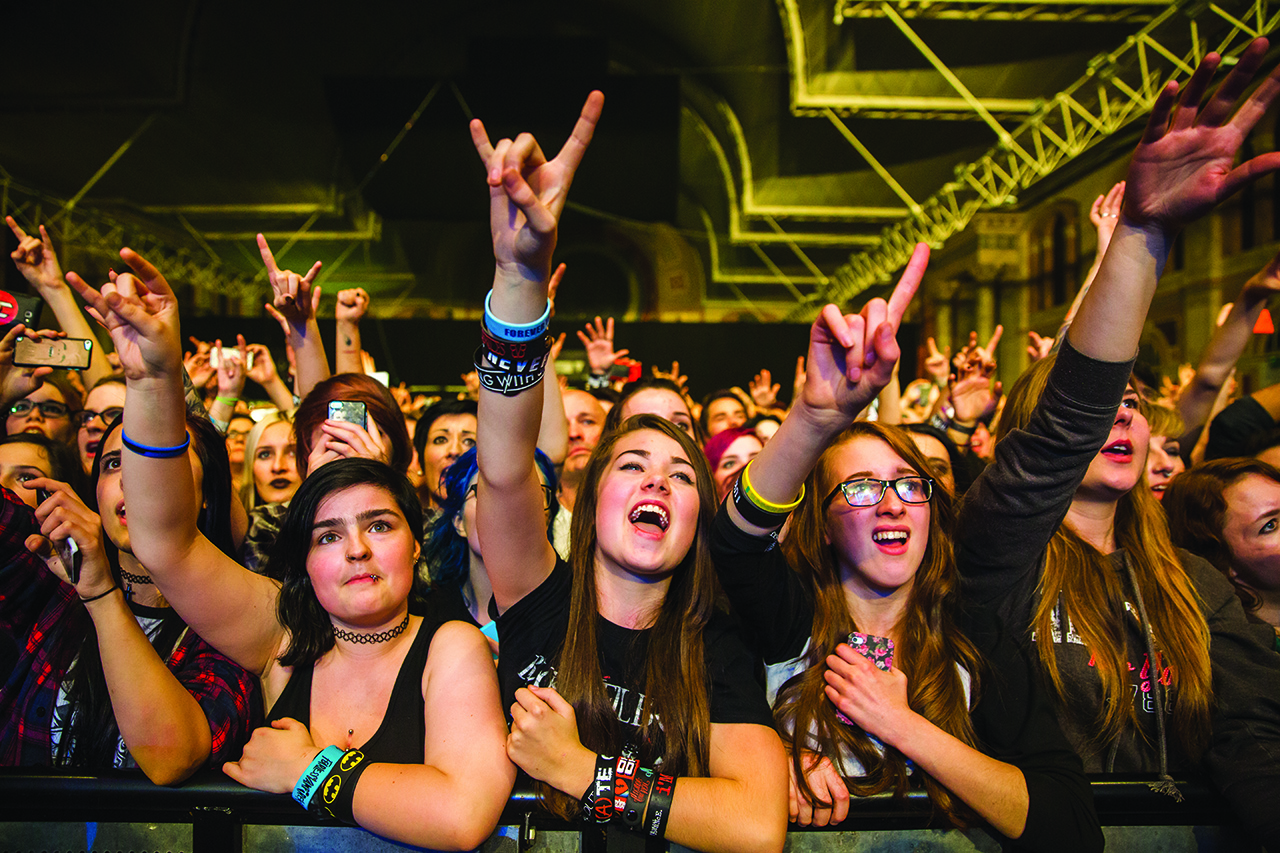
So what does the future hold? PRS For Music is reviewing its 3% takings. The rate could rise an additional 2%, according to research by Live UK magazine, and is likely to be passed on to the punter. In terms of festivals, many feel smaller-scale events at 10-20,000 capacity will become the preferred choice, as the ticket prices can be around half the price of the big-capacity events and with an alternative customer experience.
Meanwhile, for up-and-coming and mid-level bands, there are a number of passionate managers and musicians doing their best to make a living while not alienating their fans. Enter Shikari sell tickets via their own website when they can, and apps such as DICE are challenging the big players by offering tickets stored within the app and not charging booking fees.
Plus, the music industry has undergone a huge transition in the last decade. CD sales have plummeted, so those working in the industry have to maximise other revenue streams, some of which include touring, merch and sponsorship and advertisement deals. However, bands can only make more money from touring if the increased demand is there. That’s not easy to come by without a big commercial hit or years spent building a worldwide fanbase while being fed and watered by CD sales and a major record label’s big bank balance.
Says Simmrin: “Being a full-time musician is tough and it’s hard to get that across, because if bands say to the fans, ‘Hey, we’re not making money’, they appear bitter and ungrateful. Because of how music is sold, it all comes across as glamorous. Just look at how a venue is set up – the stage is higher than the audience so the band are put on a pedestal like they’re untouchable. That’s not the reality at all.”
FOR YOUR CHANCE TO TALK TO HAMMER ABOUT THE BIG ISSUES, KEEP AN EYE ON WWW.FACEBOOK.COM/METALHAMMER
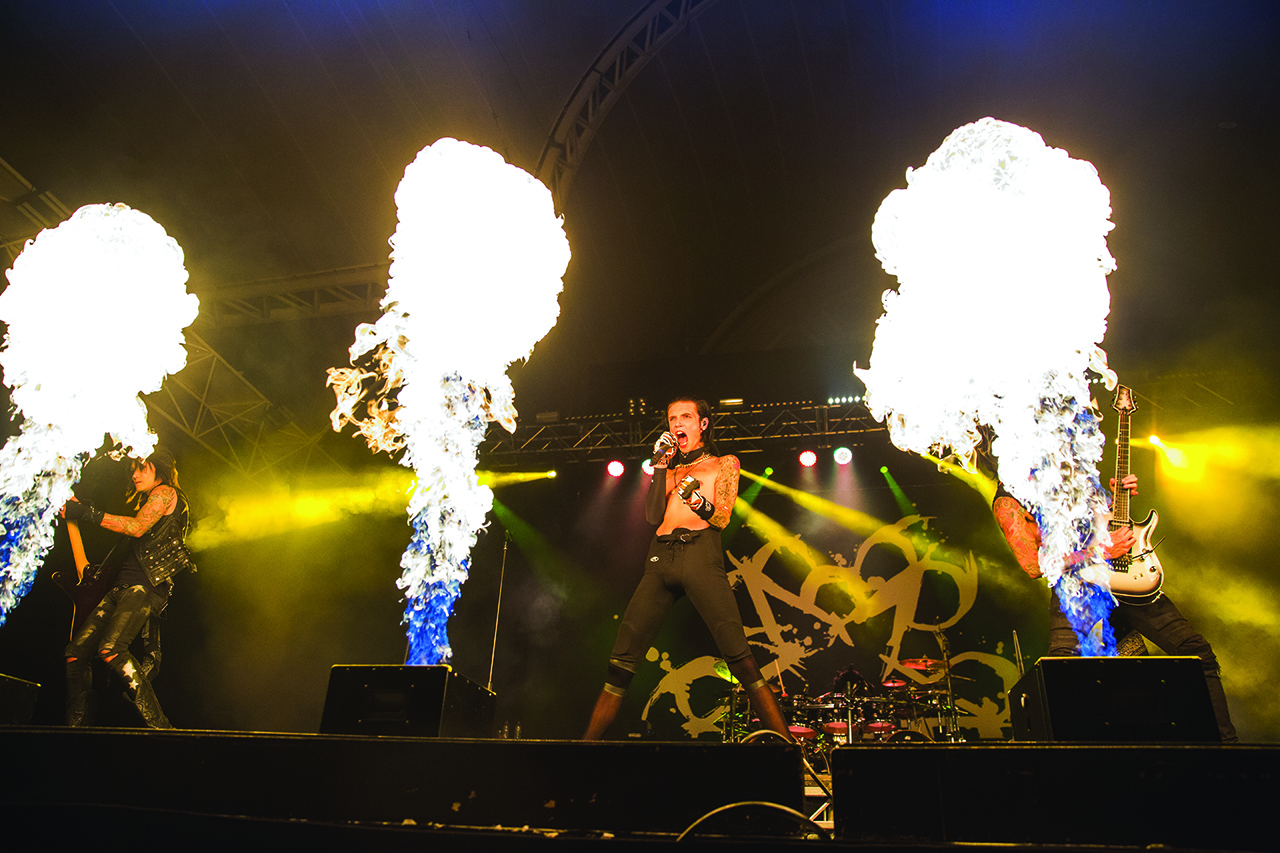
The People Speak
We asked you guys what you thought about rising ticket prices. Here’s what some of you had to say…
“We can’t complain about ticket prices because collectively we have reduced album sales to a fraction of what they were. If we want bands to make music and perform for us, we have to pay for it one way or the other.”
ALEX LEWIS, 30, DARTFORD
“I agree it’s too much. I bought a Sleeping With Sirens ticket that was supposed to be $26, but with fees I had to pay almost $50! I wish I could have used that extra money for other concerts.”
ANDREA JASPERSON, 19, WISCONSIN
“Ticket prices aren’t an issue – it’s the touts that snap up hundreds to sell them at three times the price. Maiden did it right with their O2 Arena gig a few years ago: entry only valid if you produce your credit card.”
JOHN ASHBY, 31, BRISTOL
“It’s beginning to frustrate me. I couldn’t see AC/DC play live as I couldn’t justify the cost. The average price of a gig seems to be about £40 now, which isn’t too bad, but by the time you add on food and travel, it works out at near enough £100 a gig!”
KATE BROOKES, 18, SUSSEX
